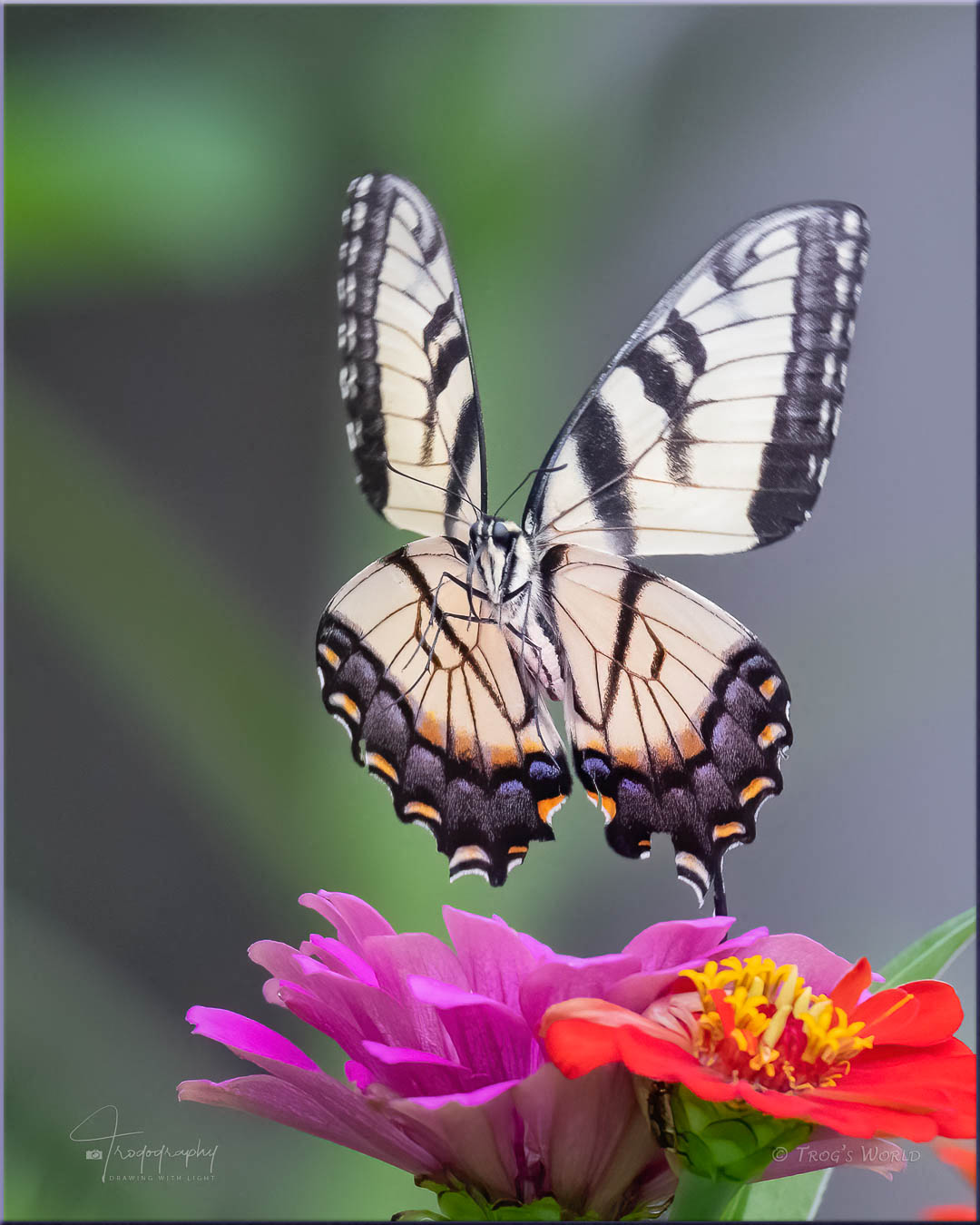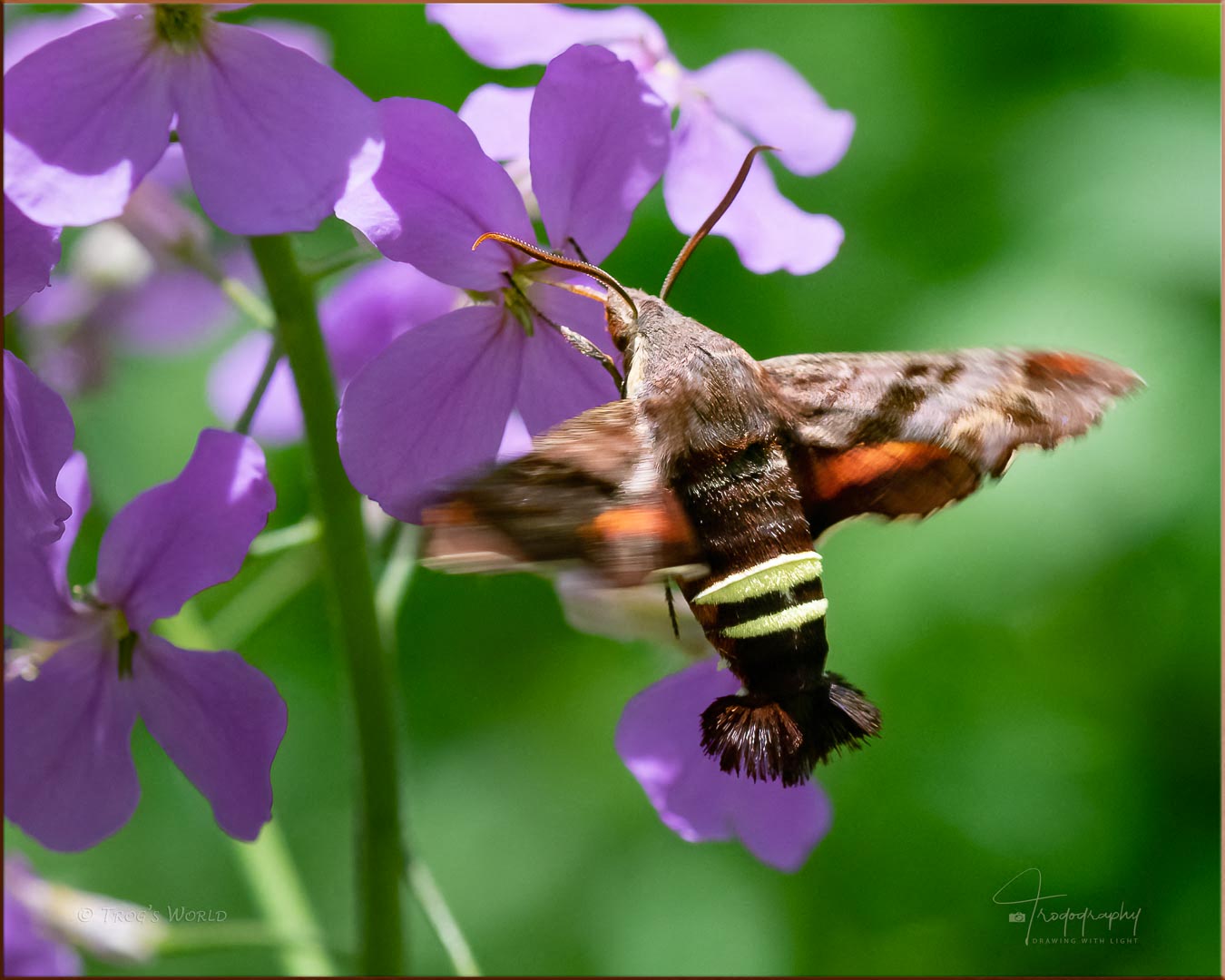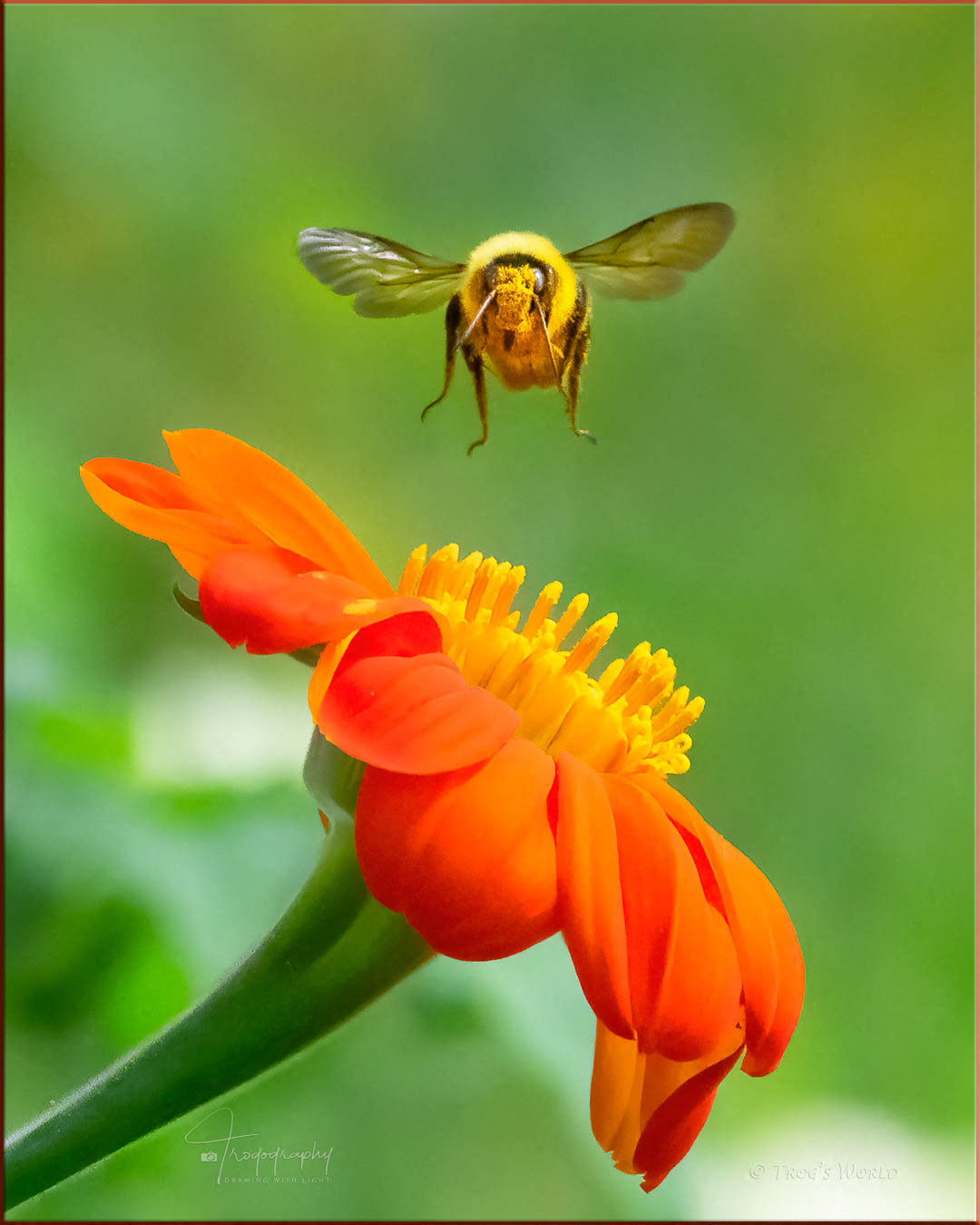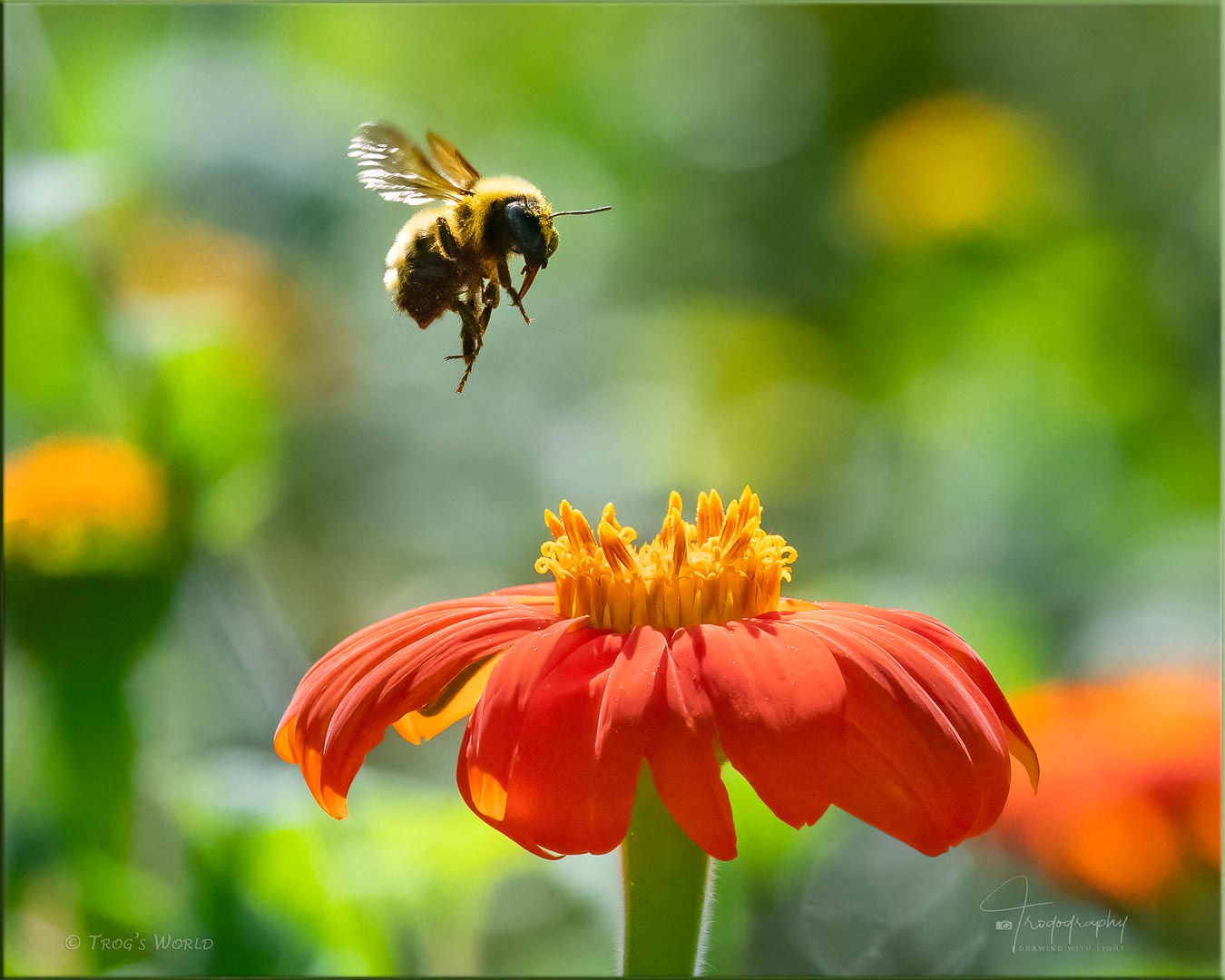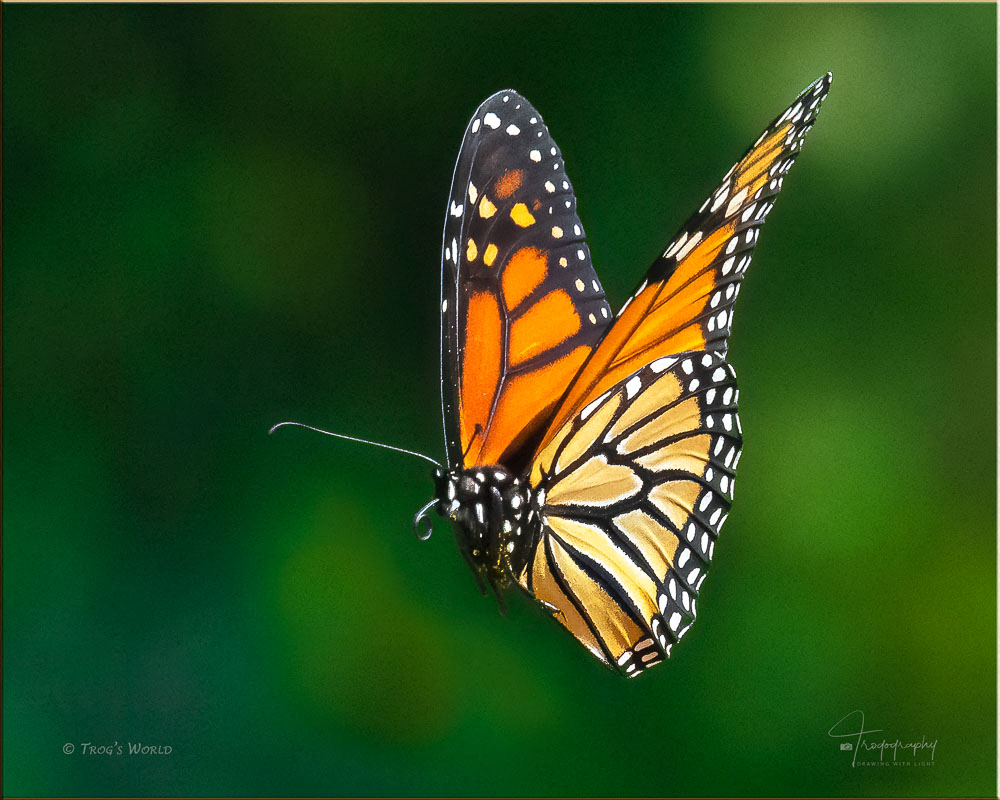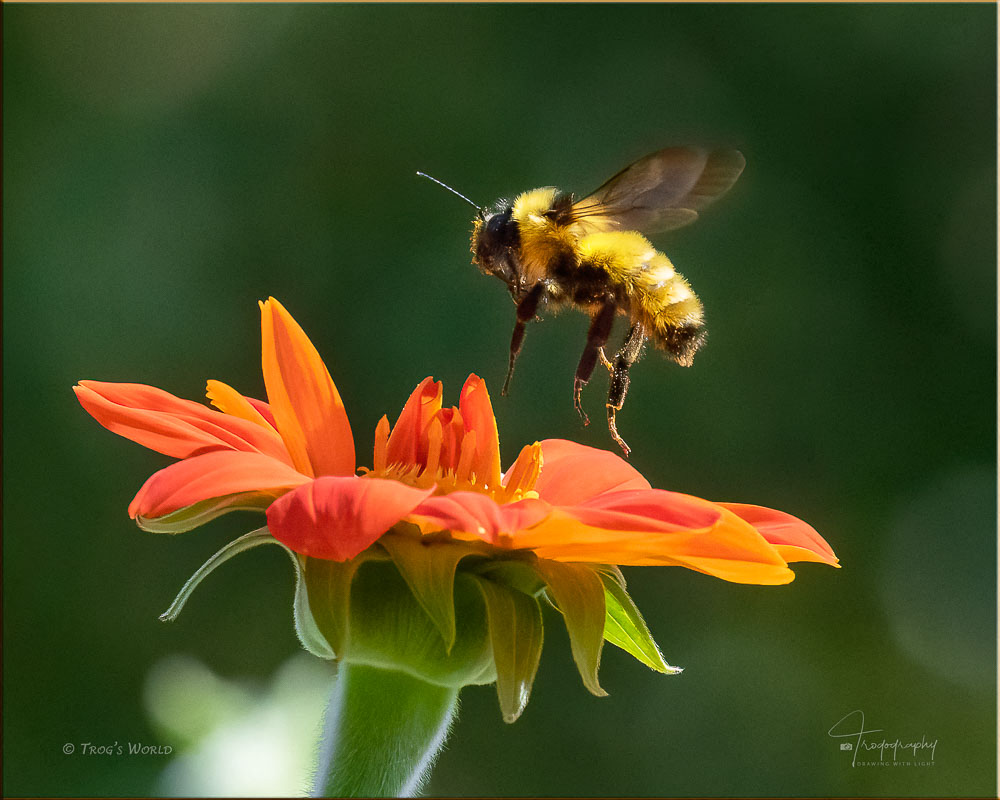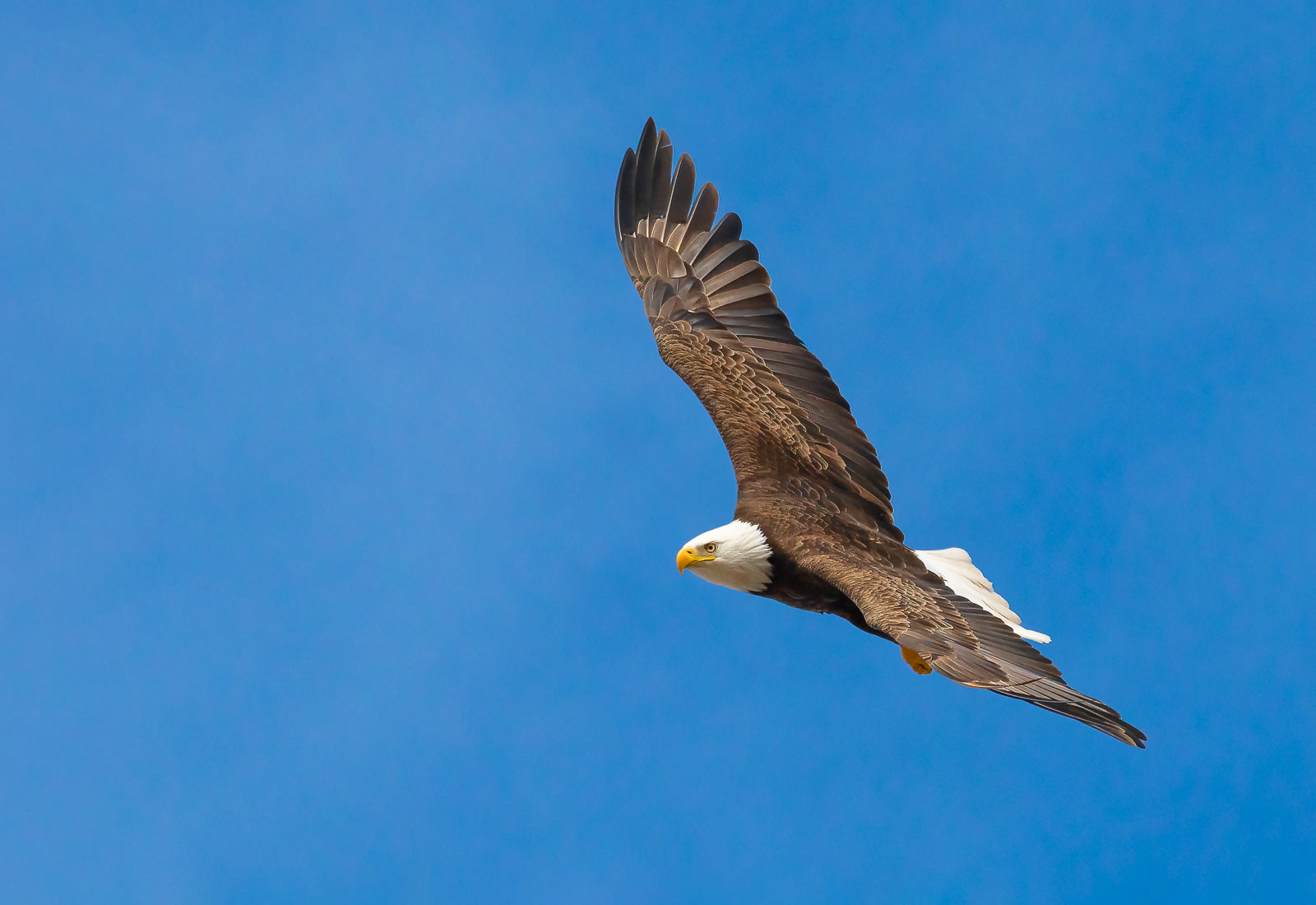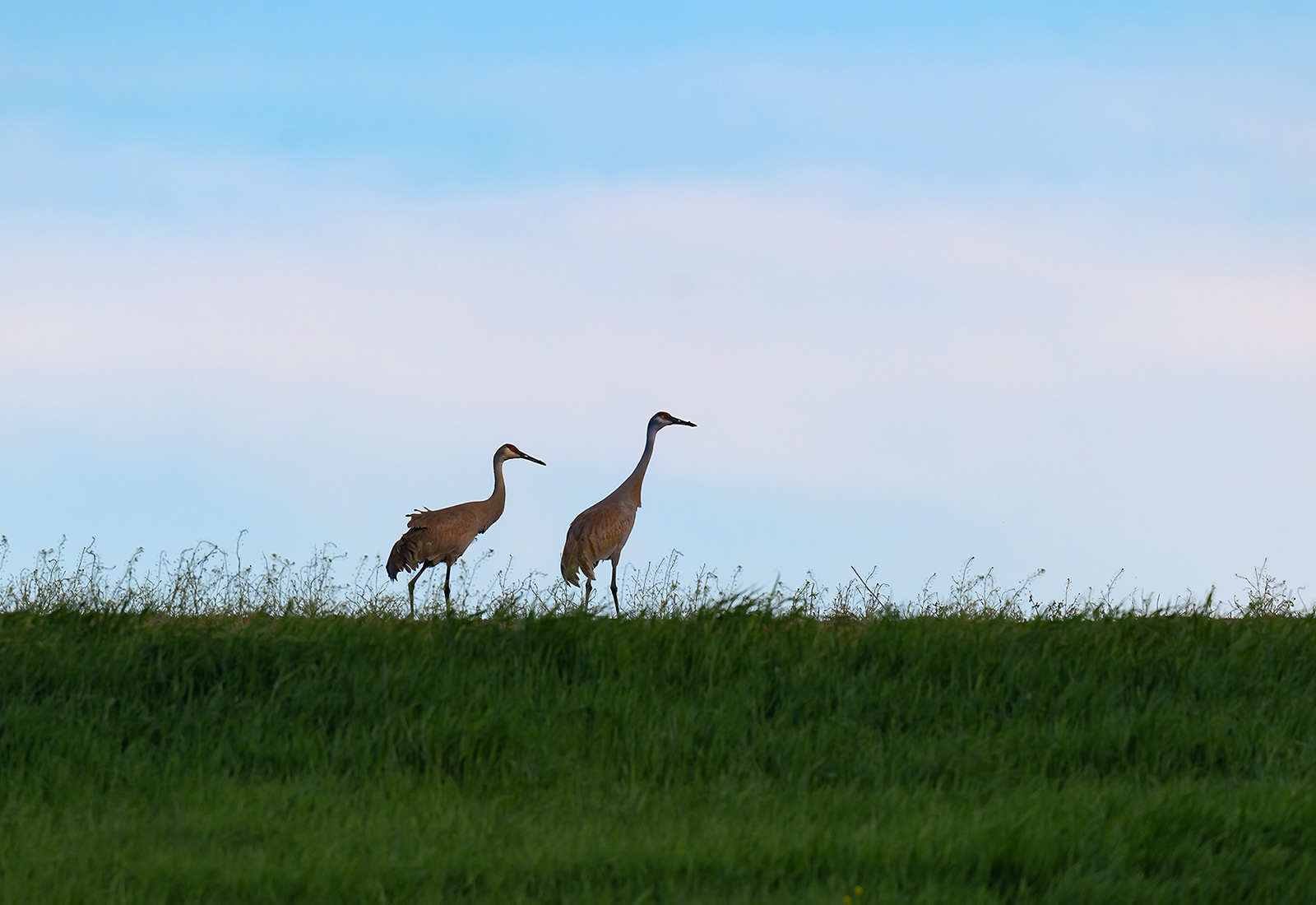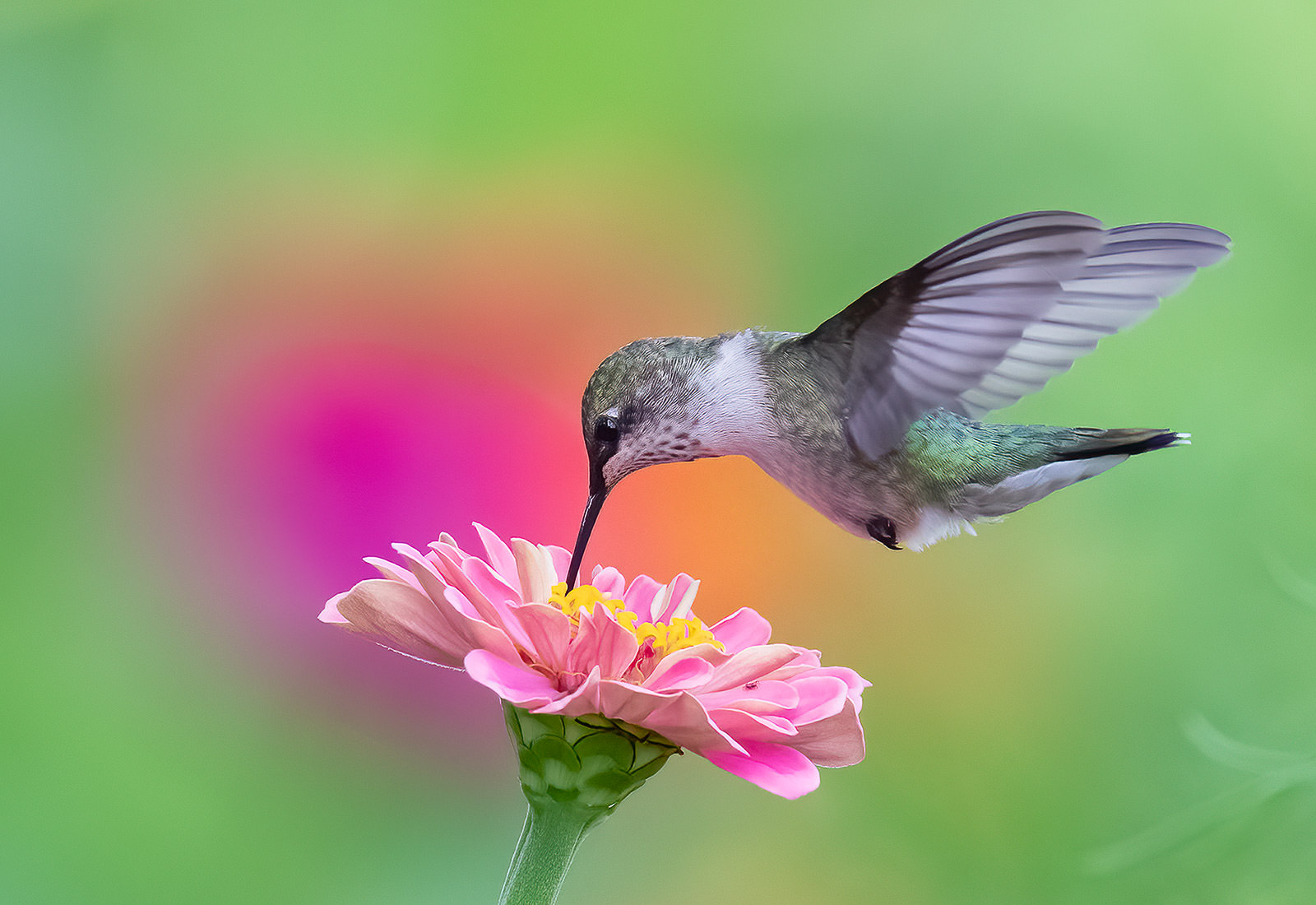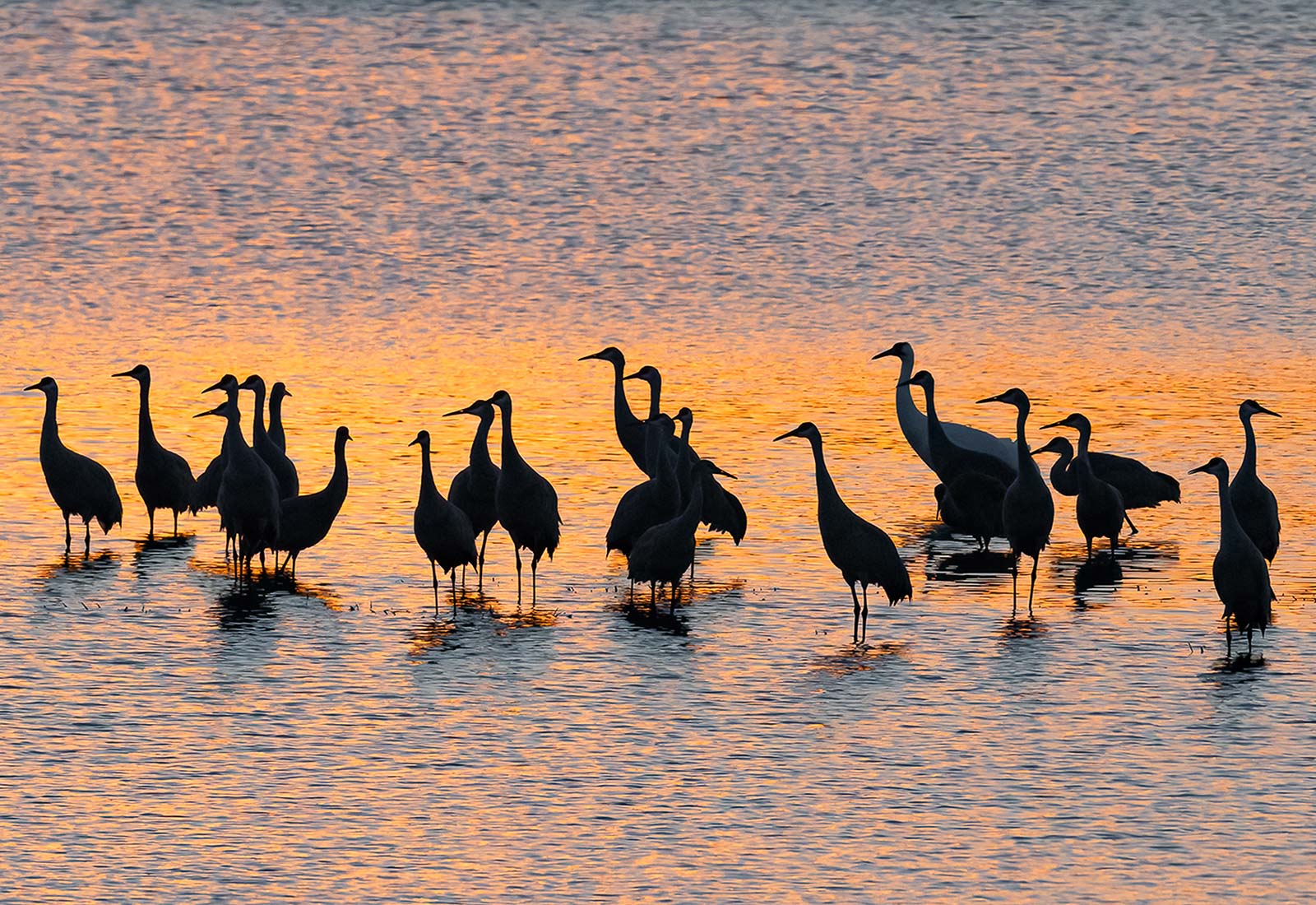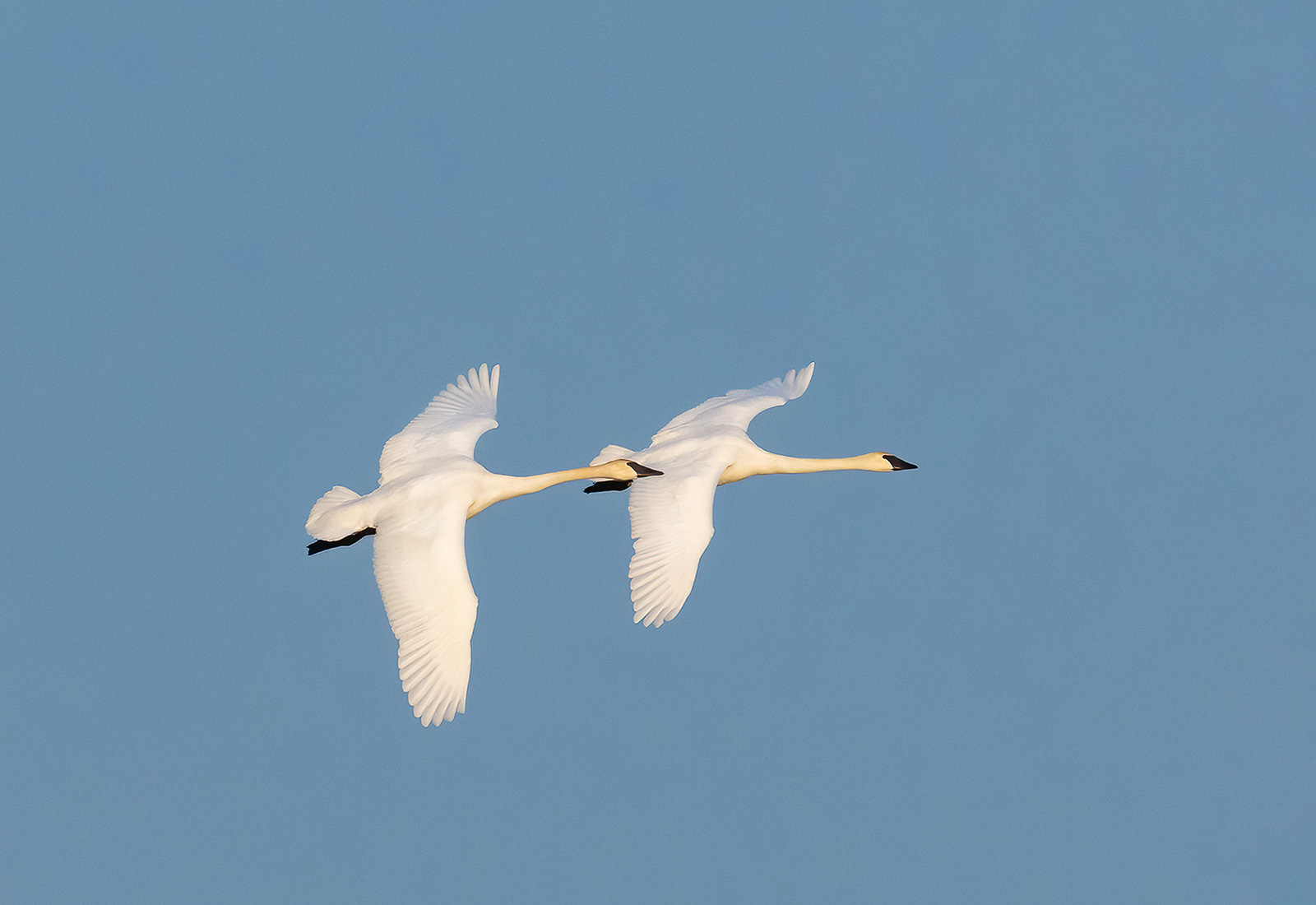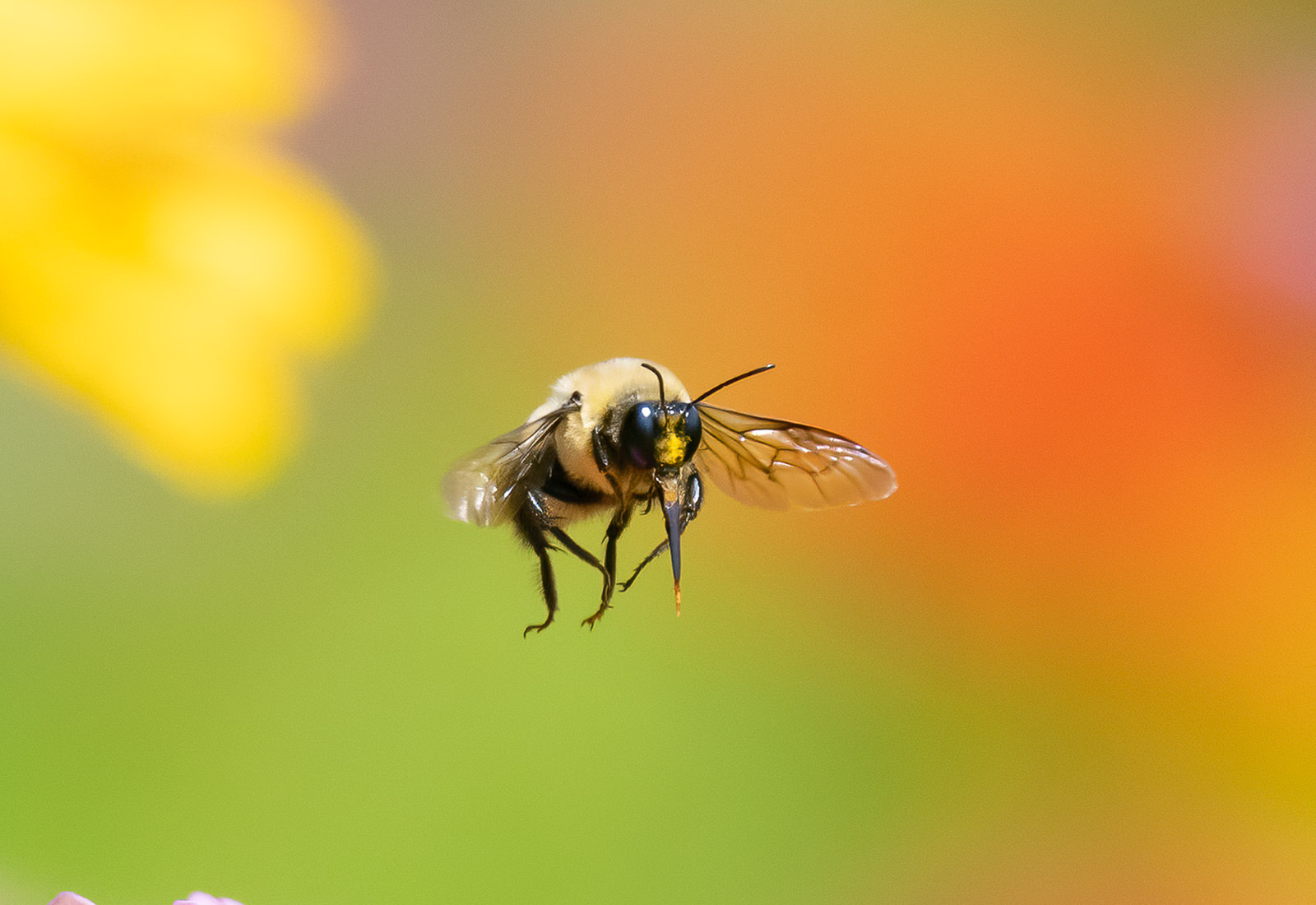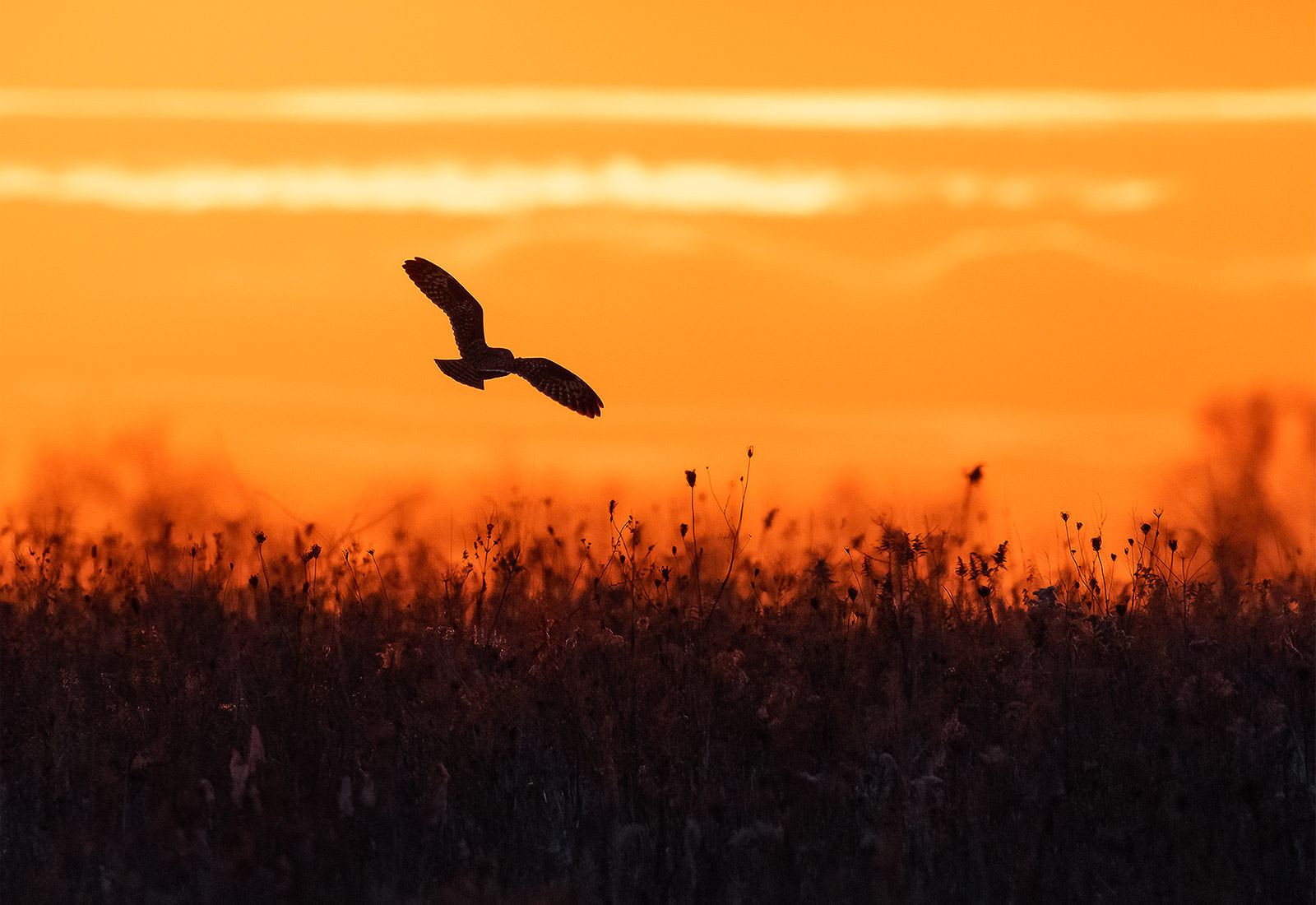Category: Invertebrates
This female Eastern Tiger Swallowtail may have a couple of battle scars, but she is still a beauty and flits through the flowers with grace and ease.
Category: Invertebrates
A Nessus Sphinx Moth with wings in constant motion uses its prominent proboscis to get a little nectar from a Dame's Rocket flower. Their wings are covered in scales (like all Lepidoptera) and over time they lose many of these scales from patches on their wings; so they are called clearwing hummingbird moths. As this was taken in May, my guess is that not many scales had fallen off so the wings are not yet clearwing.
Category: Invertebrates
Is it any wonder why these wonderful creatures are called pollinators? Look at all of that pollen!
Category: Invertebrates
Flight of the Bumblebee. June 22-28, 2020 has been designated National Pollinator Week to celebrate pollinators and spread the word about what you can do to protect them. Here's more info: https://www.pollinator.org/pollinator-week.
Category: Invertebrates
Monarch butterflies are the only butterflies known to make a back-and-forth migration similar to what birds do. They can't survive the winters, so monarchs from our region of the country (upper Midwest) head south to Mexico (the Sierra Madre Mountains) around the October timeframe. This Monarch was captured in flight last September as it flitted from flower to flower drinking up as much nectar as it could before its big journey.
Category: Invertebrates
A bumblebee lifts off from a flower filled with a little more pollen after stopping and poking around for a bit. Fun fact: Bumblebees can collect pollen twice as fast as a honey bees.
Invertebrates
Invertebrates
Invertebrates
© 2019-2023 Trog’s World LLC
All Rights Reserved
Website by Trog

